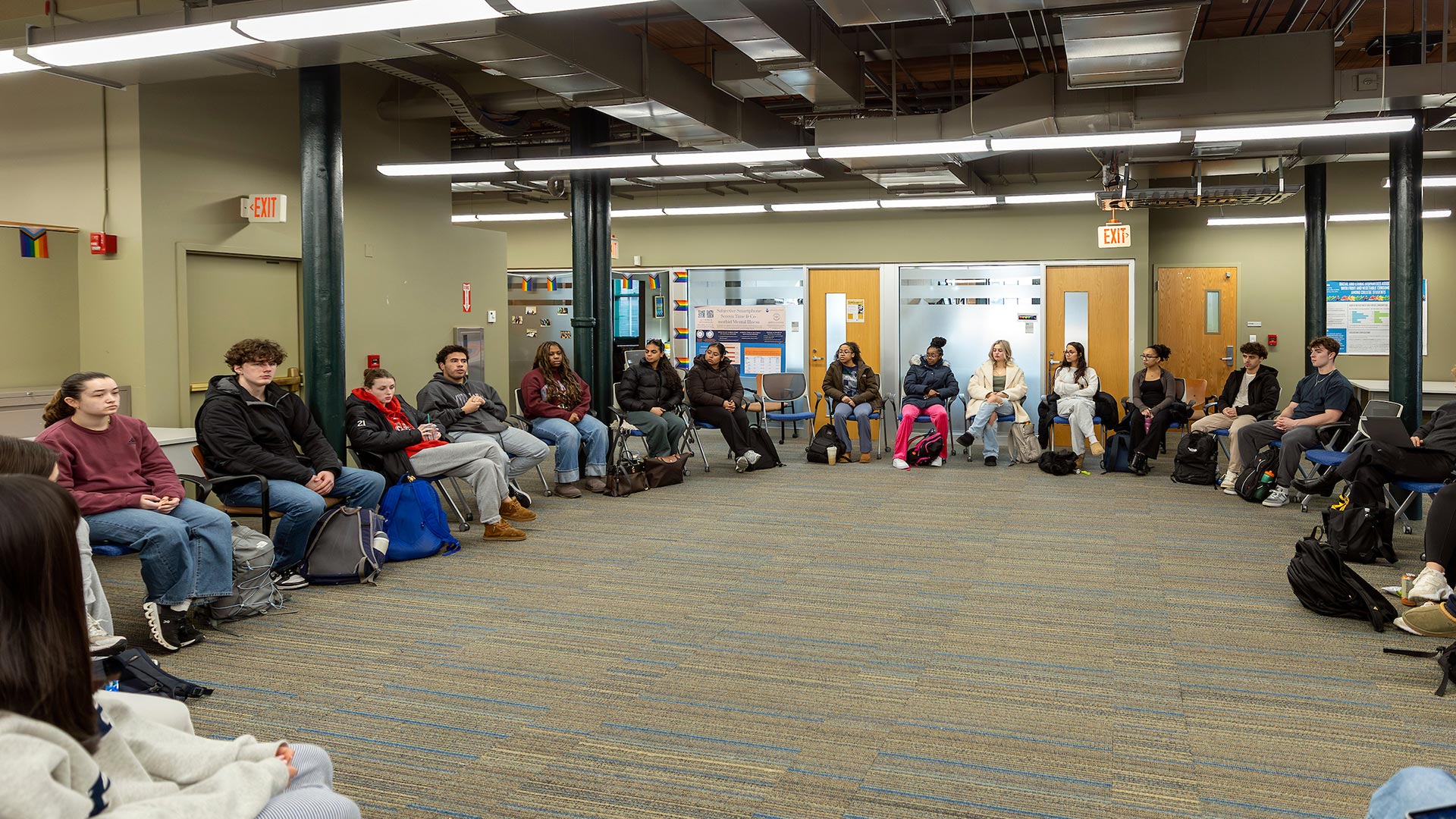Tips for Incoming Student Success
Starting as a new student at any college or university is a big step. Whether you'll be joining as a first-year or a transfer student, at JWU there are staff and faculty to help you succeed throughout your college experience. Among them is admissions counselor and transfer specialist Nayira Warren.
“College counselors play a vital role in helping students get the most out of their academic experience,” said Warren, who’s worked in educational advising for half a decade. “It’s beautiful to see them flourish with us at JWU and earn degrees that enable them in their future endeavors.”
Warren has five tips to help any new student succeed in their college journey.
1. Build Campus Connections
Warren suggests building connections with professors, counselors and university leadership. She says networking can go a long way.
“Get to know your instructors who are teaching you and even the instructors who you aren't assigned to. Check in with your counselors and take the time to meet with campus leaders,” Warren said. “By sharing with them your career interests, goals and backstory, you build a network of individuals who can provide additional support, guidance and insight beyond class time.”
Building these genuine relationships can result in job opportunities, internship experiences and additional industry knowledge.

JWU Charlotte staff are ready to help students adjust to college life.
2. Develop Time-Management Skills
Working on your time management skills should be a top priority, as it will directly impact your ability to have a well-rounded experience.
“Generally speaking, most students have a lot on their plate. Some might be working, have children, or find themselves splitting their time across a list of obligations,” Warren said. “Perfecting your time-management skills will help you find the right balance needed to do well in your classes and attend to responsibilities in your personal life.”
Warren recommends investing in a calendar, or potentially multiple ones, to stay organized. Laying out your assignments, exams, club meetings, work schedule, etc. will allow you to plan and prepare for your upcoming duties.
3. Be Your Own Advocate
Communicating what you need to succeed is critical, as you are your best advocate. As a new student, it’s important you don’t shy away from asking questions or for help, as you grow accustomed to your new environment.
Additionally, don’t be afraid to seek tutoring, counseling or special accommodation services.
“Speaking up may feel tough at times,” Warren said. “Please know that if there’s something you need, there are faculty and staff members here to listen to you and give you appropriate guidance.”
Warren also says communicating hardships such as food insecurity, illness or the loss of a loved one allows your university community to support you with available resources and programs.
4. Get Involved on Campus
Feeling a sense of belonging plays a major part in the college experience. Immerse yourself in the various clubs, organizations and events on campus.
Connecting with your peers outside the classroom expands your network and builds memories.
“These are opportunities to have fun, meet new people, learn new things or have first-time experiences,” Warren said, “Start by finding one thing to get involved in or creating your own group on campus that is tailored to your interests. Campus involvement really helps to shape your college journey.”
5. Do Your Research
For transfer students -- when you make the decision to transfer colleges, you need to identify what’s needed to apply and how your existing coursework will transfer over.
When a student expresses interest in transferring to Johnson & Wales University, several resources are provided to them. Among them is Wildcat Chats, a virtual offering for prospective students and applicants, allowing them to make a transfer student appointment with an admissions counselor.
“This is a great way to speak with us about the university, our majors and the application process, and ask any questions they have,” Warren said.
During those Wildcat Chats, admissions counselors will review online resources specific to students interested in transferring to JWU. This includes the Campus Catalog, which details the majors offered, along with the course descriptions and credits required to complete degree programs. Also reviewed is the Transfer Evaluation System, a public database of courses offered at two-year and four-year colleges, in-state and internationally. These resources help students understand how their current coursework could transfer over to JWU.
Warren also recommends noting the requested documents and paperwork required for your application and their due dates. This includes transcripts, letters of recommendation and test scores.




